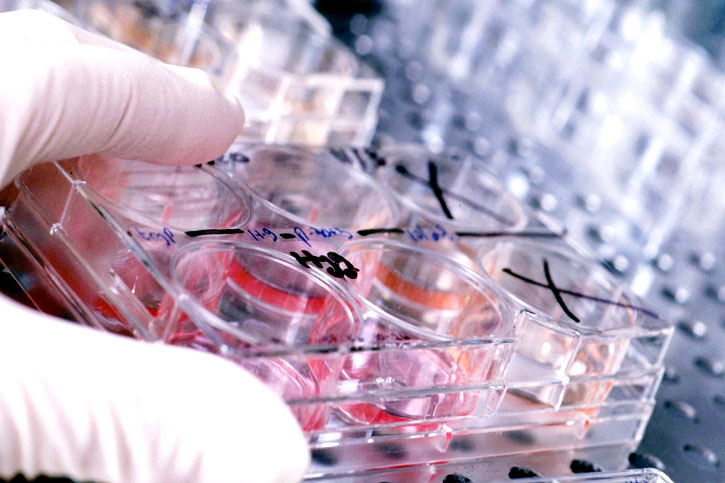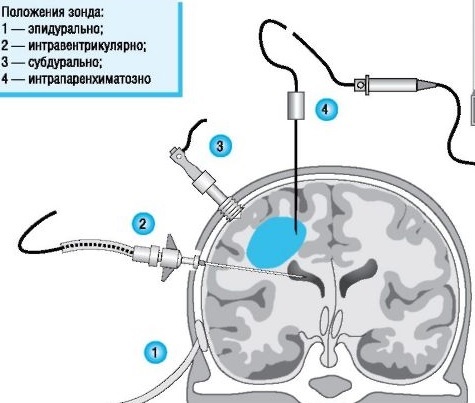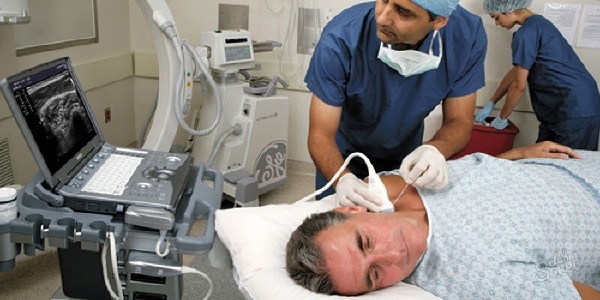Blood test for AFP( alpha-fetoprotein assay)

Alpha-fetoprotein( AFP) is a protein substance synthesized in the hepatic cells and tissues of the developing gastrointestinal tract of the developing fetus.It is the precursor of albumin.
AFP is one of the very first identified and confirmed oncomarkers.
Table of contents: When is AFP analysis performed AFP analysis in pregnancy: rates and abnormalities Physiological standards for AFP content Some features of AFP analysis Which pathological conditions are accompanied by an increase in the AFP level Reasons for a decrease in the AFP levelWhen is AFP analysis assigned
AFP is used for:
- for the diagnosis of liver cancer( hepatoblastoma and hepatocellular cancer);
- dynamic monitoring of treatment of oncological pathology;
- for the treatment of tumors arising from embryonic embryonic cells;
- early detection of fetal malformations;
- monitoring of a developing child during pregnancy.
Note : the cause of increased AFP in the blood of adults has not yet been clarified.Studies of the National Library of medicine did not determine the participation of this cancer marker in any function of the body.
The analysis values are used in the diagnostic complex when examining pregnant women.It allows you to suspect defects in the intrauterine development of a future child.
The analysis is also used in patients with suspected oncological processes in the liver and male genital glands.Testicular cancer gives an increase in AFP content in 60-70% of cases with the existing pathology, especially - in the advanced stages with existing metastases.
Analysis of AFP in pregnancy: rates and abnormalities
The main function of alpha-protein is protective.It is he who prevents the aggressive influence of the immunity of the pregnant woman on the developing organism of the child.The marker protein is involved in preventing the immune rejection reaction.Also, AFP performs a transport function in the fetal organism, carrying out the transfer of oxygen.
The initial source of this marker is the yellow body located in the ovary tissues.After 5 weeks of pregnancy, the child's newly formed organism begins self-release of AFP
The content of alpha-fetoprotein increases both in fetal blood and in the blood of its mother.Diagnostically valuable is the 12-16 week gestation period.The highest AFP value is typical for 32-34 weeks of pregnancy, then a slow decrease in the value occurs.

After the birth of the child and the achievement of one year of life, the AFP indicator reaches the adult figure.Various methods define different norms, which must be taken into account when deciphering the values.
For more information on the importance of assessing AFP levels in pregnancy and deciphering analyzes of pregnant women, you will receive this video review:
Physiological standards for AFP content
Physiological indicators of AFP detected in the blood range from 10 ng/ Ml to 8 IU / ml.
For the recalculation of the results of ng / ml in IU / ml the following formula is used:
IU / ml * 1,21 = ng / ml;
In case of a reverse translation of the values, the formula is applied:
ng / ml * 0.83 = IU / ml.
For the standardization of the indicator and the analysis of deviations, the value MoM ( multiples of median) was entered, or the median multiplicity indicator is the average value of the marker value characteristic for a certain term of the norm( in ascending order).
MoM allows you to compare the values of the analysis made during pregnancy at different times, and use data from different laboratories.
Normally, the AFP level is in the range 0.5 - 2.5MoM.
The data obtained may vary depending on the biochemical methods used.
There are two methods of determination:
- immunochemical;
- is an enzyme immunoassay.
For the study used:
- liquid part of blood - plasma or serum;
- fluid located between the pleura( pleural);
- ascites( taken from the abdominal cavity);
- cystic contents;
- bile;
- fluid located in the uterine cavity( amniotic).
Some features of AFP analysis
 The study should be applied repeatedly to monitor the process in dynamics.The determination of AFP must be combined with an analysis of the content of other oncomarkers.
The study should be applied repeatedly to monitor the process in dynamics.The determination of AFP must be combined with an analysis of the content of other oncomarkers.
Important: alpha-fetoprotein should be taken only in one laboratory, using one method.
It should always be remembered that the presence of elevated AFP values can not be an independent method of diagnosing a possible malignant tumor.For this, reliable and verifiable methods are used.The oncomarker should only alert the doctor who, if necessary, will assign a computer tomography, MRI, ultrasound, histological examinations to the patient.
Which pathological conditions are accompanied by an increase in the level of AFP
AFP indices are increased with:
- malignant tumors of the liver, gallbladder and ducts;
- neoplasms from the pancreatic tissue;
- stomach cancer, thick intestine;
- malignant processes in the tissues of the broncho-pulmonary system;
- for cancers of men and women( testes and ovaries);
- metastasized tumors in other organs.
The increase in AFP results in non-oncological processes:
- cirrhotic changes in the liver;
- acute, latent( latent) and chronic infectious hepatitis;
- chronic alcoholism of stage II, in which liver function is severely impaired;
- for chronic diseases of the hepatic-biliary system, leading to the development of the syndrome of chronic hepatic insufficiency.
An important criterion for developing diseases is the increase in AFP in obstetric-gynecological practice.
AFP level increased when:
-
 multiple pregnancy variant;
multiple pregnancy variant; - necrotic processes of the hepatic tissue in the developing child( under the influence of viral diseases);
- embryonic developmental anomalies, leading to the formation of anencephaly( absence of large hemispheres, soft tissues of the head and bones), defects( spinae) of the spine, the appearance of umbilical hernias, renal failure of the child, inadequate formation of muscles and aponeuroses of the abdominal wall of the developing fetus;
- other variants of pathological developmental disorders.
Reasons for a decrease in the level of AFP
In some diseases, a decrease in the content of Alpha- fetoprotein is possible.To this state lead pathological processes in a pregnant woman. Reducing background AFP may occur when:
- develops Down's syndrome in a child;
- defects accompanied by delayed development;
- of intrauterine fetal death;
- beginning abortion;
- "false" pregnancy;
- is a bladder drift( a bubble-like growth of chorionic villi);
Note: in pregnancy AFP is defined as an additional method in the performance of prenatal screening, always on the background of the main diagnostic procedures.
Alexander Lotin, medical reviewer



